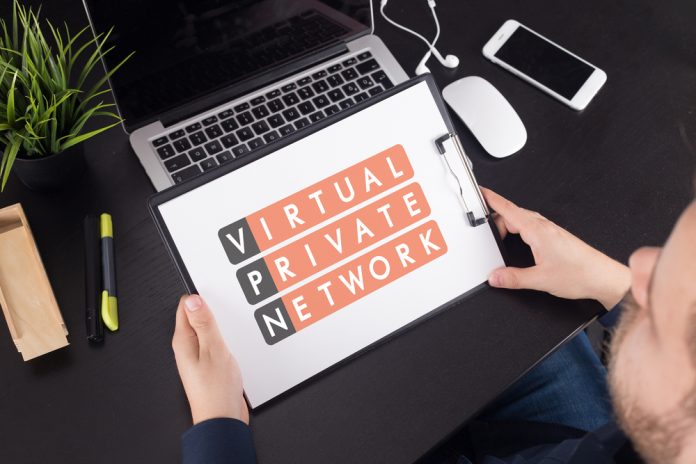Running a small business can be a challenge, no matter how you see it. Competition is usually stiff, and big multinational corporations can push your venture into oblivion if you don’t know how to handle specific situations.
One of the scenarios in which business managers need to excel is in online security and data privacy. A startup needs to be able to manage its clients’ information thoroughly and responsibly, to avoid any unwanted leaks and reckless use of it.
VPN, a privacy and security suite for all types of companies
VPN, or Virtual Private Networks, are handy apps for individual users that want to spoof their locations and safeguard their content from hackers, cyber criminals, malware developers, and online advertising agencies, as well as dodge governmental surveillance and intelligence agencies and censorship measures.
However, people starting and maintaining small businesses can also reap the benefits of using the VPN technology. By rerouting the user’s data, shared content online, and IP address, it creates another layer of protection against unwanted external agents. On top of that, a VPN app with excellent speeds and reliable encryption, like SurfShark, will be able to let you change the place you appear to be connected from, effectively allowing employees access to work networks and other related sites from remote locations. If you’re not convinced yet, this SurfShark VPN review will give you a better background about this VPN provider.
Seven ways a small business can benefit from a VPN
VPNs can help office managers to configure a network with common rules
VPNs allow office managers to set a work network for the safe data and file sharing using web-based channels and platforms, without having to endure the risk of their digital assets falling in the wrong hands. Small business owners need to understand that to provide a service, the company needs to be in the right place internally, both financially and structurally. To help others, an entity has to be healthy itself.
That is why implementing a VPN is also useful for employees that are working “offsite.” It provides an effective security solution, but all members of the office, or “network,” need to agree with the approach.
VPNs can promote productivity
Employees that know about online security are aware of how vulnerable the Internet can be, which makes them wary of connecting to public Wi-Fi hotspots. And the chances are that they will eventually travel, so the most likely scenario involves them using a VPN to feel safer when they have to use public networks.
As it turns out, having peace of mind is the passport for enhanced productivity. So if a VPN can provide a more secure environment to browse the web, then savvy staffers and employees will enable their encryption when on the move.
VPNs can make customers feel secure
If you, as a small business owner, use a VPN to protect all your digital assets, your clients and potential customers will see that you can manage their information responsibly and securely as well.
Running a home business implies collecting all kinds of data from people making purchases, including clients, patients, or subscribers. They worry about their online security and data privacy, too, so running a VPN will help ease their fears.
Remember, they will be sharing things like name, email address, payment information and other crucial data bits that may need privacy.
A VPN reduces the risk of cyber attacks
If you see a giant company on the news because it suffered a hacking attack, imagine what these cyber criminals can do to smaller enterprises and businesses. According to Symantec, zero-day vulnerabilities augmented 125% from 2014 to 2015.
If you, as a business owner, implement a Virtual Private Network and persuade your employees to stay away from public networks, you would be dramatically reducing the risk of being targeted by a cybercriminal.
A VPN helps employees and staff members to spoof their location
While you embark on a journey, you may notice that some of the work-related sites you used to visit back home are now unavailable. That happens because of geographical restrictions: most Internet pages recognize the user’s IP address (and with that, their location), and if the number is from a foreign country, they won’t grant access.
With a VPN, you can effectively spoof your location by connecting to another nation’s server, thus unblocking pages from home, including your email platform, and your office’s network. Also, some sites are blocked in specific countries: most of the Middle Eastern states don’t allow the use of VoIP services, and China restricts social media outlets like Facebook or YouTube. With a reliable VPN, you can circumvent the situation.
Private VPN apps are affordable
You can find VPN apps for free on the web, but they are often scams that will provide logs from your activity to the highest bidder. You can, and should, implement a private VPN client to protect the assets of your beloved business.
These private VPN apps won’t break your budget: most of them can be found at very affordable monthly plans that usually range between $4 and $15. If you care about managing your company’s data, you will be more than happy to pay that amount of money.
VPN technology is easy to use
While it is true that there is still a sizable portion of the Internet community that is not familiar with the VPN technology, its popularity is increasing by the day, and even small business managers are taking advantage of its security and encryption prowess.
One of the primary reasons behind its increasing popularity is that it is a very easy-to-use tool that brings several benefits to the table without a substantial investment of time, money and resources.
The Verdict
In conclusion, if you run a small or medium-sized business, don’t be afraid of the VPN technology. It may seem complicated at first, but it is very straightforward to install and use, and your employees and your company will show healthy levels of online security because of it.
Find a Home-Based Business to Start-Up >>> Hundreds of Business Listings.

















































